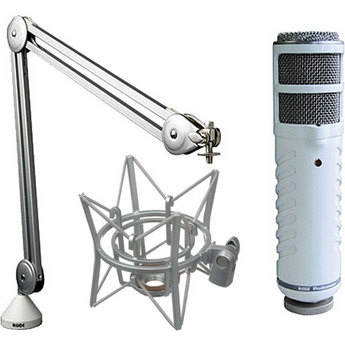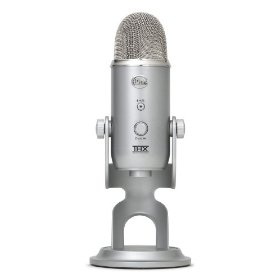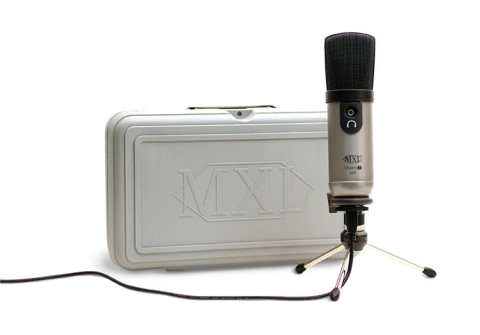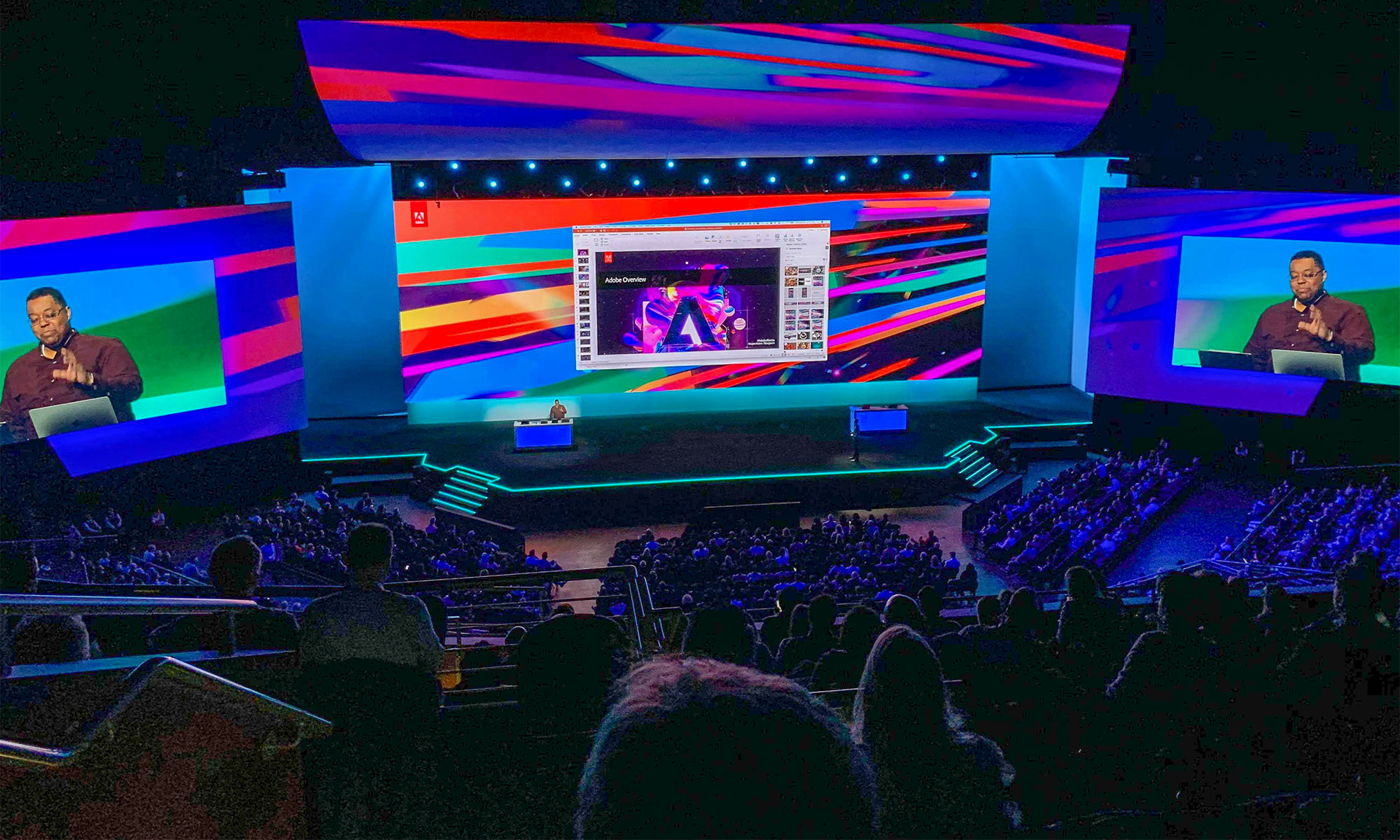
Last Monday I asked for your help in choosing the USB mic that sounded best to you for my podcasting. I already had my favorite choice, but I figured my choice isn't as important as what sounds best to my listeners. Well as luck would have it, my favorite choice was your favorite choice too 🙂

You chose the…Rode Podcaster Studio Kit (Sample 1)
I have enjoyed using this mic since day one. My only complaint has been that the volume/gain level isn't as high as I would like. However, I did think it was the best sounding and apparently so did many of you. However, it's also clear to me that different ears have different tastes. So although the Rode Podcaster got the most votes, it doesn't mean that the other two choices aren't good. Apparently they are because they each got votes too.
The Number 2 choice was my New Blue Yeti THX Certified Mic

This New Mic has a lot to love about it. Pictures don't do it justice. This thing is big! Bigger than it appears in a photo. It also has some great options on it for setting the kind of recording you're going to do. It has a built-in headphone jack for monitoring and it's own gain controls.
The Number 3 choice was the MXL Studio 1 Mic

This was close! It almost got as many votes as the Blue Yeti, and while it was my least favorite podcasting mic also, I would definitely use this for recording interviews or panel discussions or other type of multiple presenter activities.
Why was there a distinct difference in audio levels between Sample 1 and 2/3?

I wanted to test these 3 mics in the same environment with the same computer settings to be as fair as possible. In hindsight that may have given the Blue and MXL mics a disadvantage. Many of you commented on the "background noise" in the 2nd and 3rd samples. This could probably be reduced by simply adjusting the gain for both of these mics lower. I used the exact same input level on all three computers. It was set high because the Rode Podcaster's level built-in level is so low. The Yeti has it's own Gain knob and I had it set in the middle. So if you were to get any one of these mics (and I remind you that they are all great choices), you would set the gain to the appropriate level for YOUR environment.
With that said, I still think that the Rode Podcaster does a better job in picking up LESS background noise than the other two. However, you ears may tell you otherwise and that was the point of doing this whole experiment.
Where to buy?
Here are the links to buy these three Mics:
Rode Podcaster $289.95
Blue Yeti THX $124.41
MXL Studio 1 $76.42


So it would seem that with USB microphones, you kind of get what you pay for.
While I understand your desire to make sure that the test was as fair as possible, I agree that it might have skewed the results a little. A more fair test might have been to set-up each mic exactly how you would use it for your podcasting and record some audio with it. It wouldn’t have to be the same thing said for each mic. That being said – I loved your review and test. Keep up the good work!!
Thanks for the review – it was fun to hear samples from all and give some feedback – its nice to know you care so much about your listeners opinions!
I agree with Troy. Seems to me the best test would be to optimize each mic to its best potential. Would the results have been any different if you set the gain to optimize the MXL mic and then recorded the Rode mic with those settings? For the price difference, I wonder if the MXL mic, when optimized to its best ability, would have sounded pretty close to the Rode mic in your samples. The hum in Samples 2 and 3 was very noticeable and, I believe, skewed the results just based on that. Would love to see a new test/sample done with customized settings for each mic.
I actually thought Sample 1 was the Blue mic- based on what I’ve heard before from these companies studio products. Not that Rode isn’t good, just Blue, more often than not, sounds better to me.
I do think a level match would have been better for the test, though. I don’t mean as far as matching the recording volume (setting each mic up optimally is best), but evening out each of the samples playback volume. The way is was, I thought Sample 1 was less efficient than the others, but more controlled; Sample 2 & 3 were louder ( more sensitive), but sounded noisier.
I really like it when blind audio test are posted, because it takes the bias’ out and lets the chips fall where they may.
Thanks for this review! I was about to buy another USB mic and now decided to order the Blue Yeti.
Found it!
Still a toss up for me between the Yeti and the Rode…
The Yeti is a condenser mic, and the Podcaster is a dynamic, the Yeti is always going to have more gain.
Having said that, very few podcasters can use condensers (even though many DO) and not have too much noise in their recordings. Condensers require a good room acoustically.